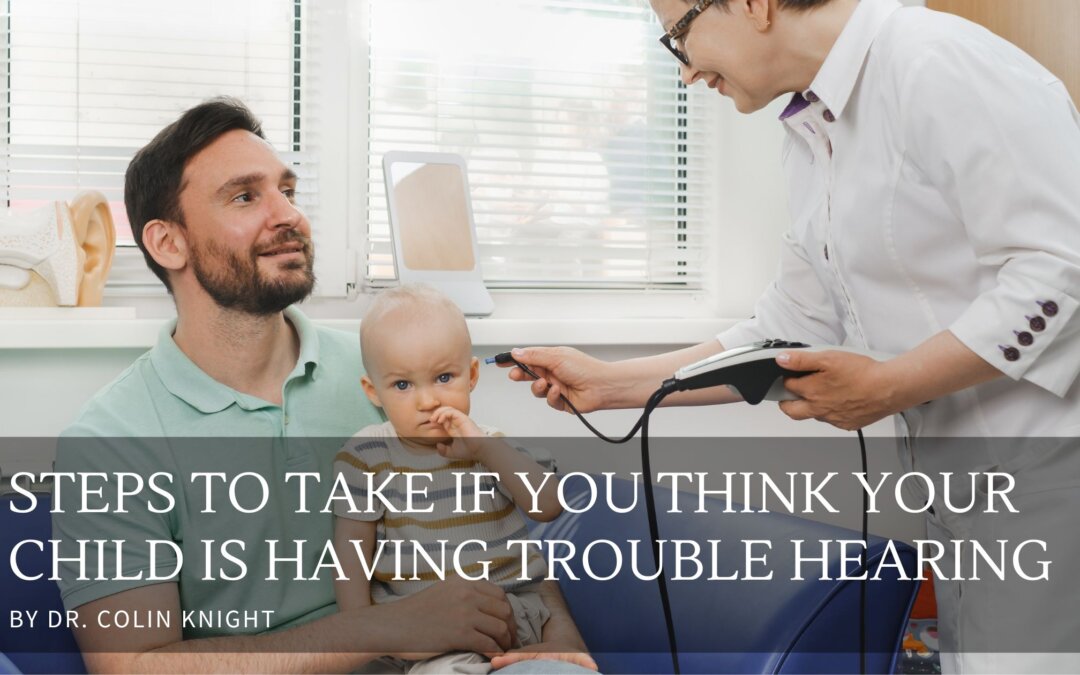As a parent, noticing signs that your child may be having trouble hearing can be concerning. However, taking proactive steps to address the issue is crucial for your child’s development and well-being. If you suspect that your child is experiencing hearing difficulties, here are some steps you can take to address the situation effectively:
Observe Signs of Hearing Difficulty: Pay close attention to your child’s behavior and communication skills. Signs of hearing difficulty in children may include not responding when called, speaking loudly, frequently asking others to repeat themselves, misunderstanding directions, and exhibiting speech and language development delays.
Schedule a Hearing Screening: If you suspect your child is having trouble hearing, speak to your child’s pediatrician about scheduling a hearing screening. Your pediatricain may be able to do it, or may refer you to a specialist. Hearing screenings are quick, painless tests assessing your child’s ability to hear different sounds and frequencies.
Seek Professional Evaluation: If the hearing screening indicates a potential hearing problem, it’s essential to seek further evaluation from a pediatric audiologist or otolaryngologist (ear, nose, and throat – ENT – specialist). These professionals can conduct more comprehensive assessments to diagnose the extent and nature of your child’s hearing loss.
Consider Early Intervention Services: If your child is diagnosed with hearing loss, early intervention services can be crucial in supporting their development. These services may include speech therapy, auditory training, hearing aids, cochlear implants, and educational support tailored to your child’s needs.
Educate Yourself: Take the time to educate yourself about hearing loss and its impact on your child’s life. Learn about available treatments, communication strategies, and resources that can help support your child’s development and well-being.
Create a Supportive Environment: Create a supportive and inclusive environment for your child at home and in their community. Communicate openly with your child about their hearing loss and encourage them to advocate for their needs. Provide opportunities for them to interact with peers and participate in activities that promote socialization and self-confidence.
Stay Engaged with Healthcare Professionals: Stay engaged with your child’s healthcare professionals, including audiologists, speech therapists, and educators. Attend follow-up appointments, ask questions, and collaborate with them to develop a comprehensive care plan for your child.
Advocate for Your Child: Advocate for your child’s needs within educational settings, healthcare systems, and community organizations. Work closely with teachers, school administrators, and other professionals to ensure your child receives the support and accommodations they need to succeed academically and socially.
